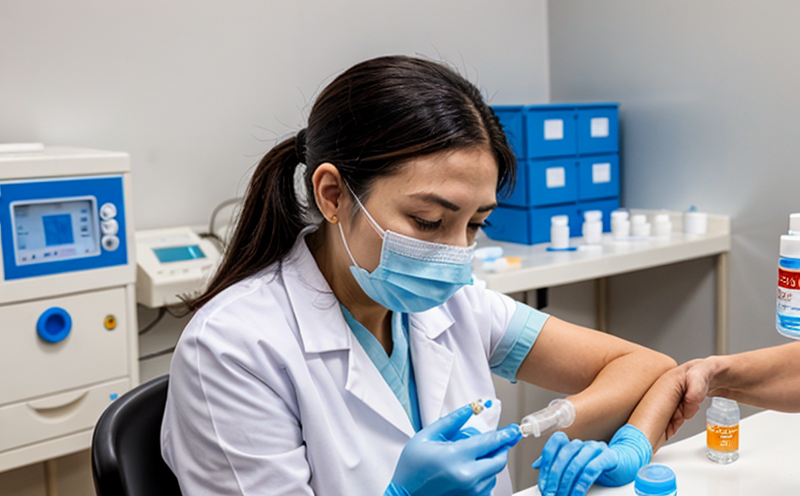USP Residual Host Cell Protein Testing by ELISA
The USP Residual Host Cell Protein (HCP) Test is a critical procedure in the pharmaceutical industry, particularly within the realm of biologics and vaccines. This test ensures that residual host cell proteins are below acceptable levels to prevent potential adverse reactions during clinical trials and post-marketing use.
Residual HCPs can arise from the culture medium used for producing recombinant protein or viral vectors in cell lines. These proteins, if present at higher quantities, could trigger an immune response leading to undesirable effects such as allergic reactions or even a serious hypersensitivity reaction (anaphylaxis).
The USP sets the standard for testing procedures and specifications in pharmaceutical products. The HCP test is outlined in USP Monograph 854. This monograph specifies the conditions for testing, including sample preparation, assay methods, and acceptance criteria.
The Enzyme-Linked Immunosorbent Assay (ELISA) method is widely used to conduct this test. ELISA detects minute amounts of antigens or antibodies in a biological fluid. In the context of HCP testing, it identifies traces of host cell proteins that might have been introduced during the production process.
The assay typically involves several steps: sample collection, extraction, and purification to ensure the integrity of the host cell protein being analyzed. The purified protein is then incubated with a specific antibody conjugated to an enzyme. If HCPs are present, they will bind to this antibody, leading to a detectable signal via the enzyme reaction.
The specificity of ELISA ensures that only the desired host cell proteins are detected and quantified. This precision is crucial because even trace amounts of residual HCP can significantly impact patient safety. The test results must meet stringent acceptance criteria, typically set at less than 20 ng/mL for most biopharmaceutical products.
To ensure reliability and consistency in testing, laboratories adhering to USP standards must have robust quality management systems in place. These systems include rigorous calibration procedures, standard operating procedures (SOPs), and ongoing training for personnel involved in the HCP test.
The importance of this testing cannot be overstated, especially given the increasing prevalence of biologics and vaccines. Regulatory bodies like the FDA and EMA require compliance with USP specifications to ensure public health safety. By adhering to these standards, pharmaceutical companies can maintain trust in their products and avoid costly recalls or market withdrawals.
In summary, HCP testing by ELISA is a cornerstone of biopharmaceutical quality assurance. It plays an essential role in safeguarding patient health by minimizing the risk of adverse reactions from residual host cell proteins.
Benefits
Ensures patient safety by minimizing the risk of adverse immune responses.
Aids in compliance with international regulatory standards, enhancing product reputation.
Provides accurate and reliable data for quality assurance and control.
Facilitates faster and more efficient batch release processes by ensuring early detection of issues.
Eurolab Advantages
As a leading laboratory in pharmaceutical testing, Eurolab offers several advantages for clients seeking USP Residual Host Cell Protein Testing by ELISA:
ISO 17025 accreditation ensures that all tests meet the highest quality standards.
Experienced and certified staff provide accurate and reliable results every time.
State-of-the-art equipment guarantees precise measurements, even for low levels of residual host cell proteins.
A comprehensive quality management system ensures consistent and reproducible test results.
With Eurolab's expertise and resources, pharmaceutical companies can trust in the integrity and reliability of their USP Residual Host Cell Protein Testing by ELISA services.
Competitive Advantage and Market Impact
Adopting USP Residual Host Cell Protein Testing by ELISA not only ensures compliance with regulatory standards but also differentiates pharmaceutical companies in the market. By demonstrating a commitment to patient safety, companies can enhance their reputation and trust among consumers.
The ability to consistently meet or exceed these stringent testing requirements sets Eurolab apart from other laboratories, making us a preferred choice for quality assurance services. Our rigorous adherence to international standards ensures that our clients' products are safe and reliable, contributing positively to the market.





